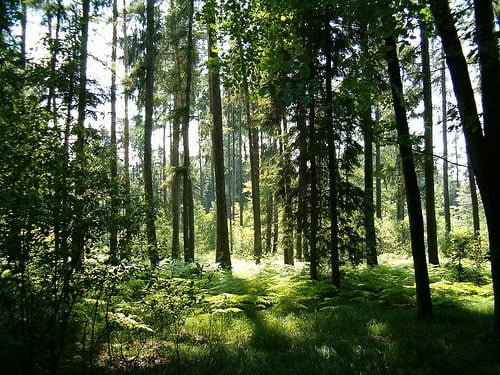

Environment
Global Forest Watch: Deforestation tool launched ‘to change how businesses manage forests’
A new online mapping tool launched to monitor global deforestation in “near-real time” has been welcomed by businesses, who say it will help encourage sustainability and transparency in the supply chain.
The World Research Institute’s (WRI) Global Forest Watch uses information from millions of satellite images, as well as data crowdsourced from communities and campaigners on the ground, to provide an up to date view of the world’s disappearing forests.
Developed with the help of around 40 partners, including Google and the UN Environment Programme, the project was partly funded by grants from governments, including the UK’s.
The easy-to-use tool utilises the technology behind Google Earth and Google Maps with algorithms specially developed by experts from the University of Maryland that scan collected images for sudden drops or spikes in vegetation.
While high-resolution images of global tree loss and gain are updated annually, data on forests in the tropics will be updated every month at a resolution of 500 metres.
A beta version of the tool, which is free for all to use, is online now.
Dr Andrew Steer, president and CEO of WRI, said the technology “will fundamentally change the way people and businesses manage forests.
“Businesses, governments and communities desperately want better information about forests. Now, they have it,”
“From now on, the bad guys cannot hide and the good guys will be recognised for their stewardship.”
According to data from the University of Maryland and Google, the world lost 2.3 million square kilometers (230 million hectares) of tree cover between 2000 and 2012. This is equivalent to 50 football fields worth of forest lost every minute of every day for those 12 years.
Global Forest Watch’s designers say their work will have far-reaching implications across many industries. They say that investors will now be better able to evaluate if the companies they support are adequately assessing forest-related risks.
Buyers of commodities such as palm oil, soy, timber, and beef – products associated with the destruction of forests in many countries – will be able to check the environmental credentials of suppliers.
These suppliers will also be able to use the tool to prove that their products are legally and sustainably produced.
“Deforestation poses a material risk to businesses that rely on forest-linked crops. Exposure to that risk has the potential to undermine the future of businesses,” said Paul Polman, CEO the consumer goods firm Unilever, a company recognised for its sustainable practices in relation to deforestation.
“As we strive to increase the visibility of where the ingredients for our products come from, the launch of Global Forest Watch – a fantastic, innovative tool – will provide the information we urgently need to make the right decisions, fostering transparency, enforcing accountability, and facilitating partnerships.”
Further reading:
Tackling deforestation through REDD+ will cost $12 billion, report warns
Drug trafficking contributing to deforestation in Central America
UNEP: area ‘size of Brazil’ under threat from unsustainable land use
Storebrand to divest from unsustainable palm oil firms
Unilever leads the way in aiming to use only ‘traceable’ palm oil


 Environment12 months ago
Environment12 months agoAre Polymer Banknotes: an Eco-Friendly Trend or a Groundswell?

 Features11 months ago
Features11 months agoEco-Friendly Cryptocurrencies: Sustainable Investment Choices

 Features12 months ago
Features12 months agoEco-Friendly Crypto Traders Must Find the Right Exchange

 Energy11 months ago
Energy11 months agoThe Growing Role of Solar Panels in Ireland’s Energy Future




























